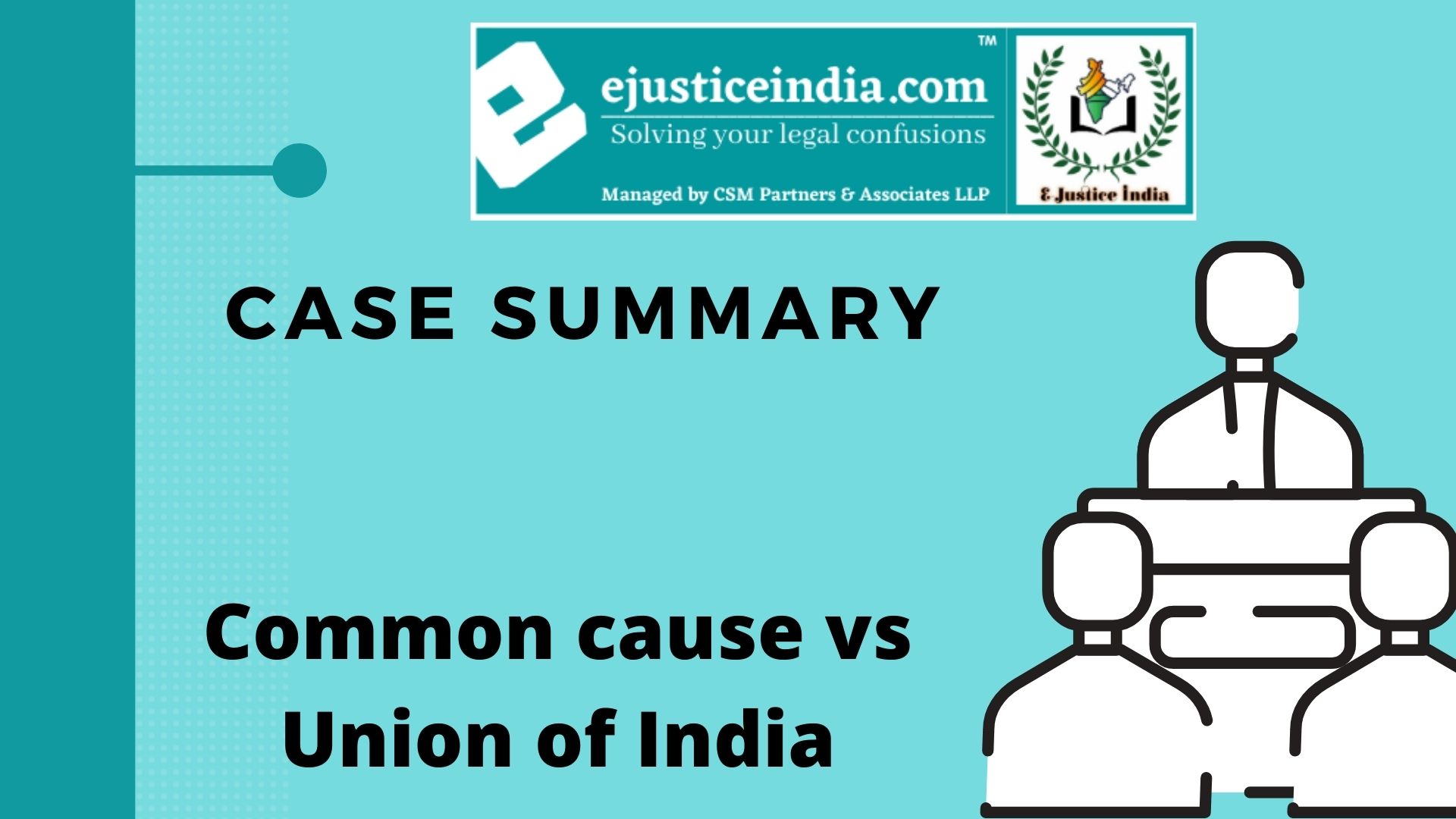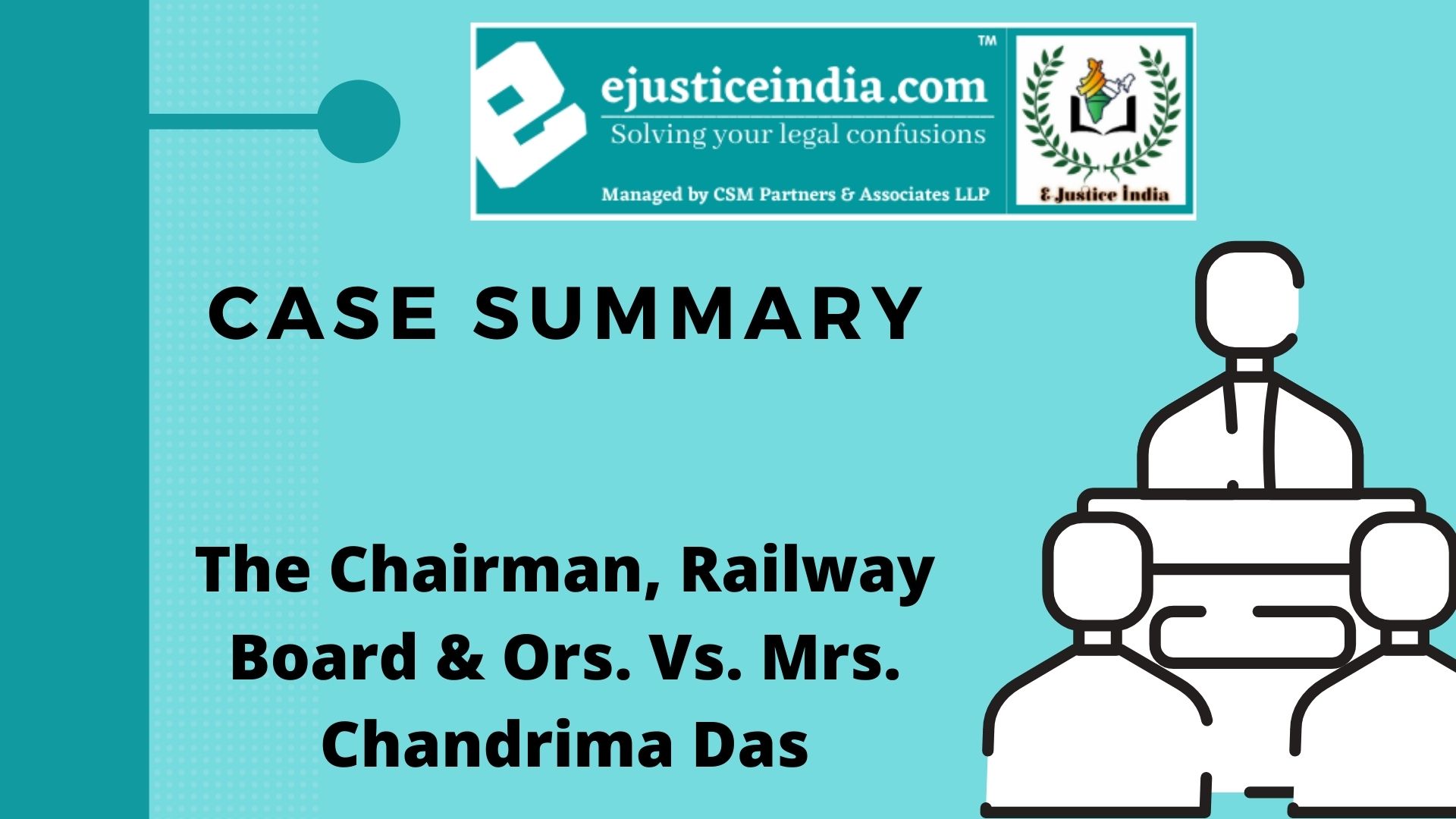Justice K.S. Puttaswamy and Others vs Union Of India and Others
Case Name : Justice K.S. Puttaswamy and Others v/s Union Of India and Others
Author : Varnika Verma
CITATIONS
AIR 2017 SC 4161
MANU/SC/1044/2017
(2017) 10 SCC 1
2017 (10) SCALE 1
2017 (8) SCJ 33
BENCH
Chief Justice Jasti Chelameswar, Justice J.S. Khehar, Justice S.A. Bobde, Justice R.K. Agrawal, Justice Rohinton Fali Nariman, Justice Abhay Manohar Sapre, Justice Dr. D.Y. Chandrachud, Justice Sanjay Kishan Kaul, Justice S. Abdul Nazeer.
INTRODUCTION
On 24th August 2017, a nine-judge bench of the Supreme Court of India in Justice K.S. Puttaswamy vs Union of India passed a historic judgment affirming the constitutional right to privacy. It declared privacy to be an integral component of Part III (fundamental rights) of the Constitution of India, which lays down our fundamental rights, ranging from rights relating to equality (Articles 14 to 18); freedom of speech and expression (Article 19(1)(a)); freedom of movement (Article 19(1)(d)); protection of life and personal liberty (Article 21) and others. These fundamental rights cannot be given or taken away by unless debarred by law, and all the laws and executive actions must abide by them.
FACTS
- A retired High Court Judge K.S. Puttaswamy filed a petition in 2012 against the Union of India before a nine-judge bench of the Supreme Court of India challenging the constitutionality of Aadhaar.
- A bench of three judges of the Apex Court considered the Constitutional challenge to the aadhar card scheme launched by the Union Government noted that norms for and compilation of demographic biometric data but the government was questioned on the ground that it was violative of right to privacy.
- The court took many cases into consideration in which right to privacy was held to be a constitutionally protected fundamental right.
- The decisions which protected the right to privacy were rendered by the smaller bench but in this case it was felt that institutional integrity and judicial discipline would require a reference to a larger bench.
- The bench observed to determine that there was any fundamental right to privacy under the Indian Constitution would entail from the decision recorded in M.P. Sharma’s Case and also in Kharak Singh Case.
ISSUES
Whether or not there is any fundamental right of privacy under the Constitution of India and the decision made by the Court that there are no such fundamental rights in M.P. Sharma & Ors. vs. Satish Chandra, DM, Delhi & Ors. and also, in Kharak Singh vs. The State of U.P, is that the correct expression of the constitutional position?
JUDGMENT
The bench comprising of nine judges of the Supreme Court of India passed a landmark judgment on 24th August 2017, and uphold the fundamental right to privacy to be a part of Article 21 of the Constitution of India and must be guaranteed by the said article. The right to privacy has been protected as an intrinsic part of the right to life and personal liberty under Article 21 of the Constitution of India and as a part of the freedoms that are guaranteed by Part III of the Indian Constitution.


